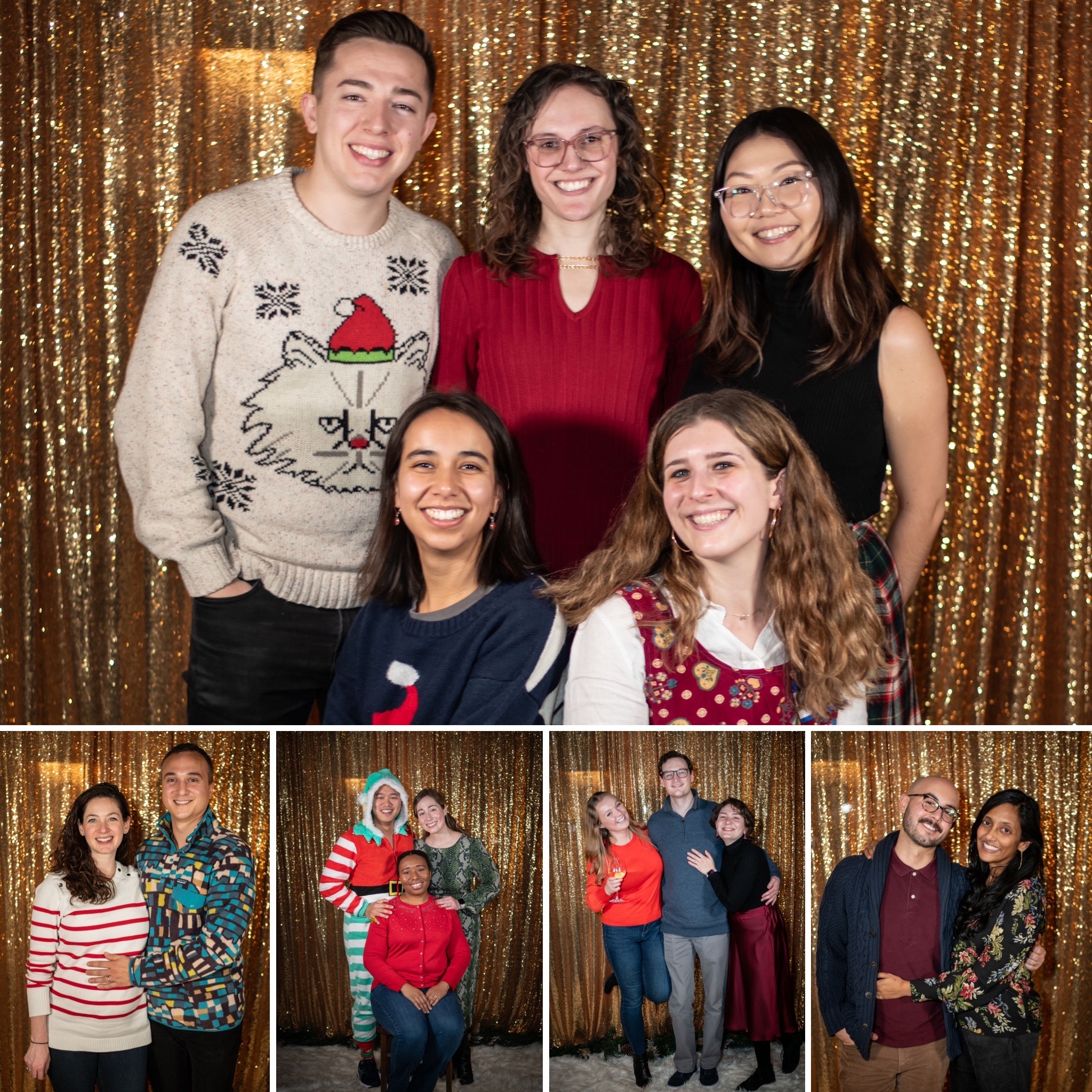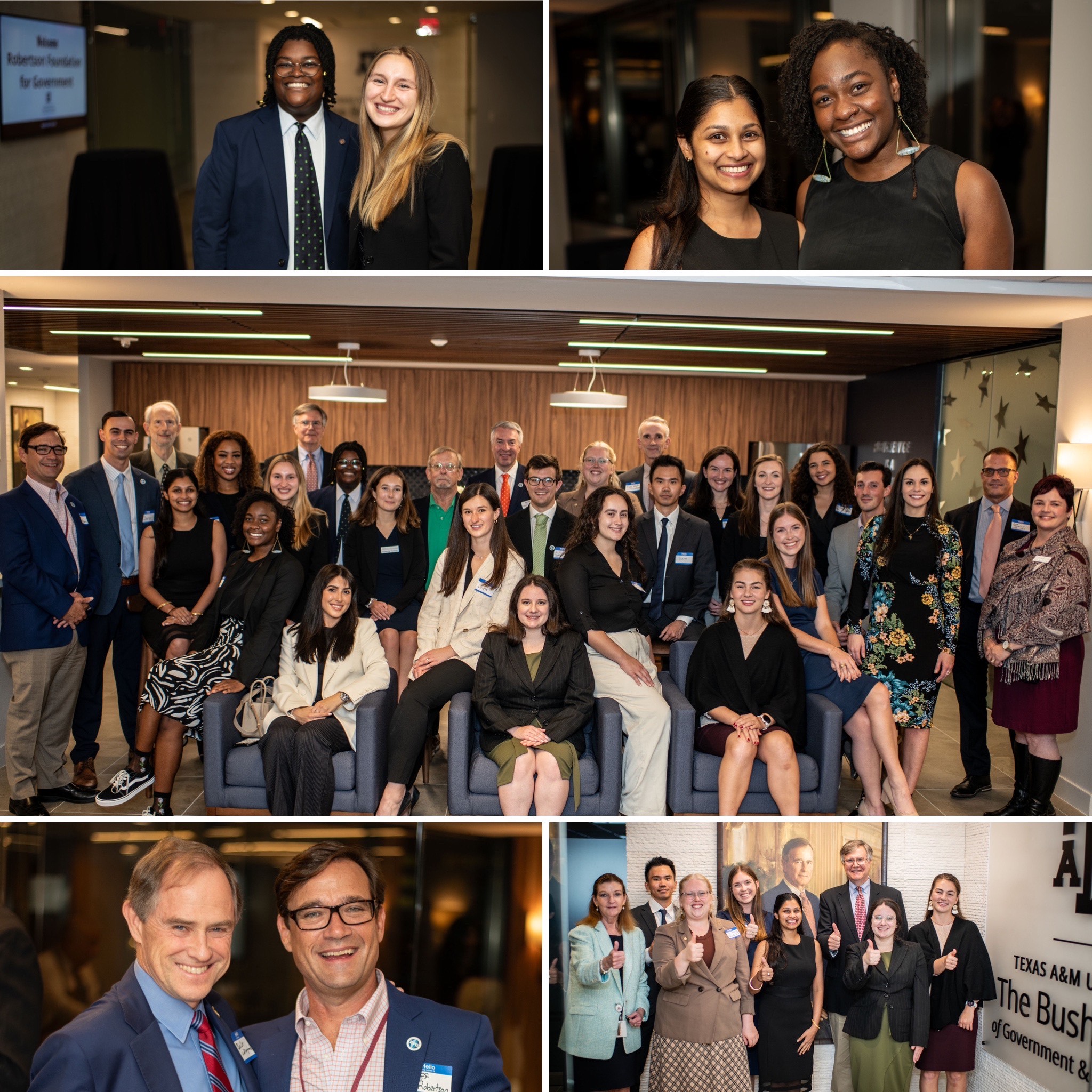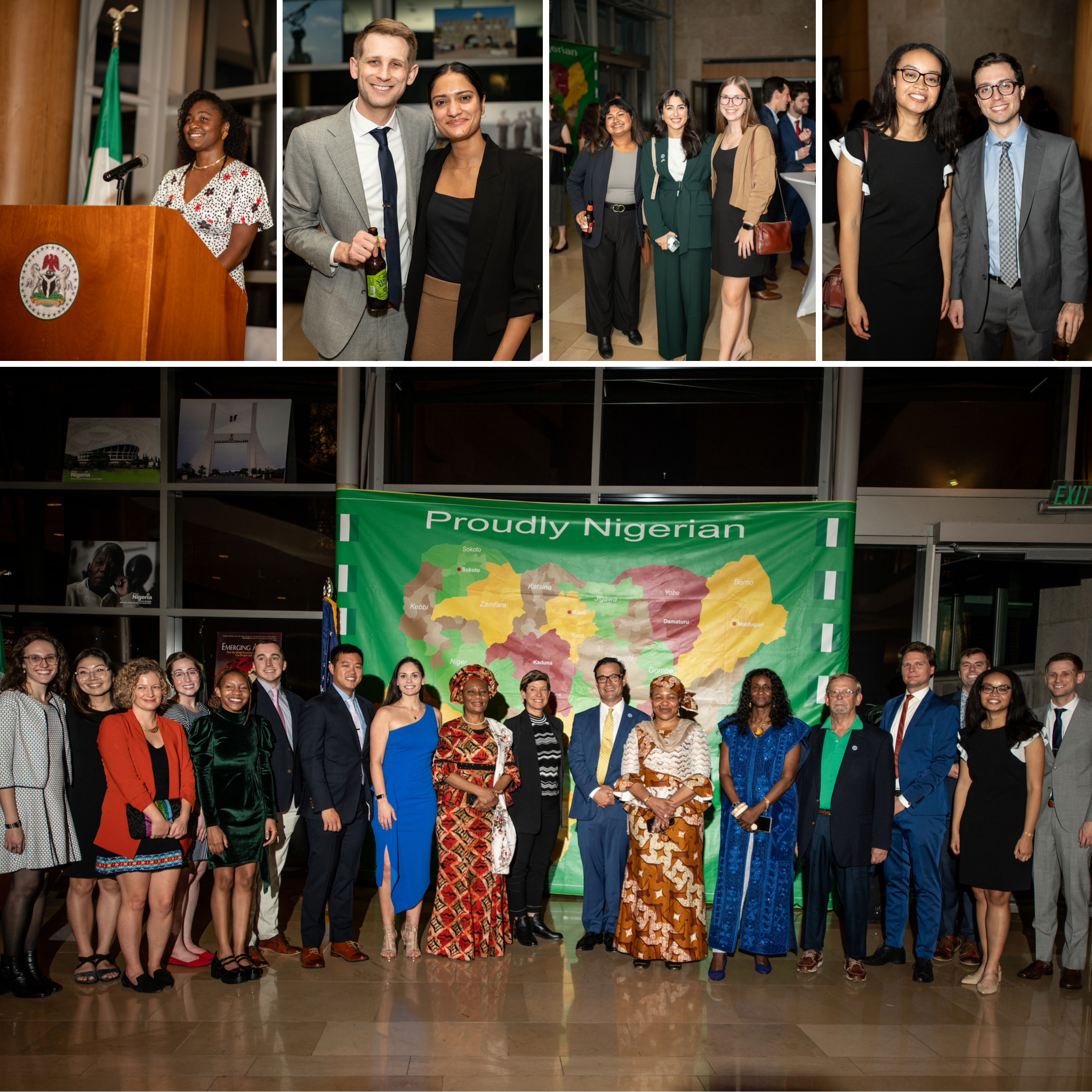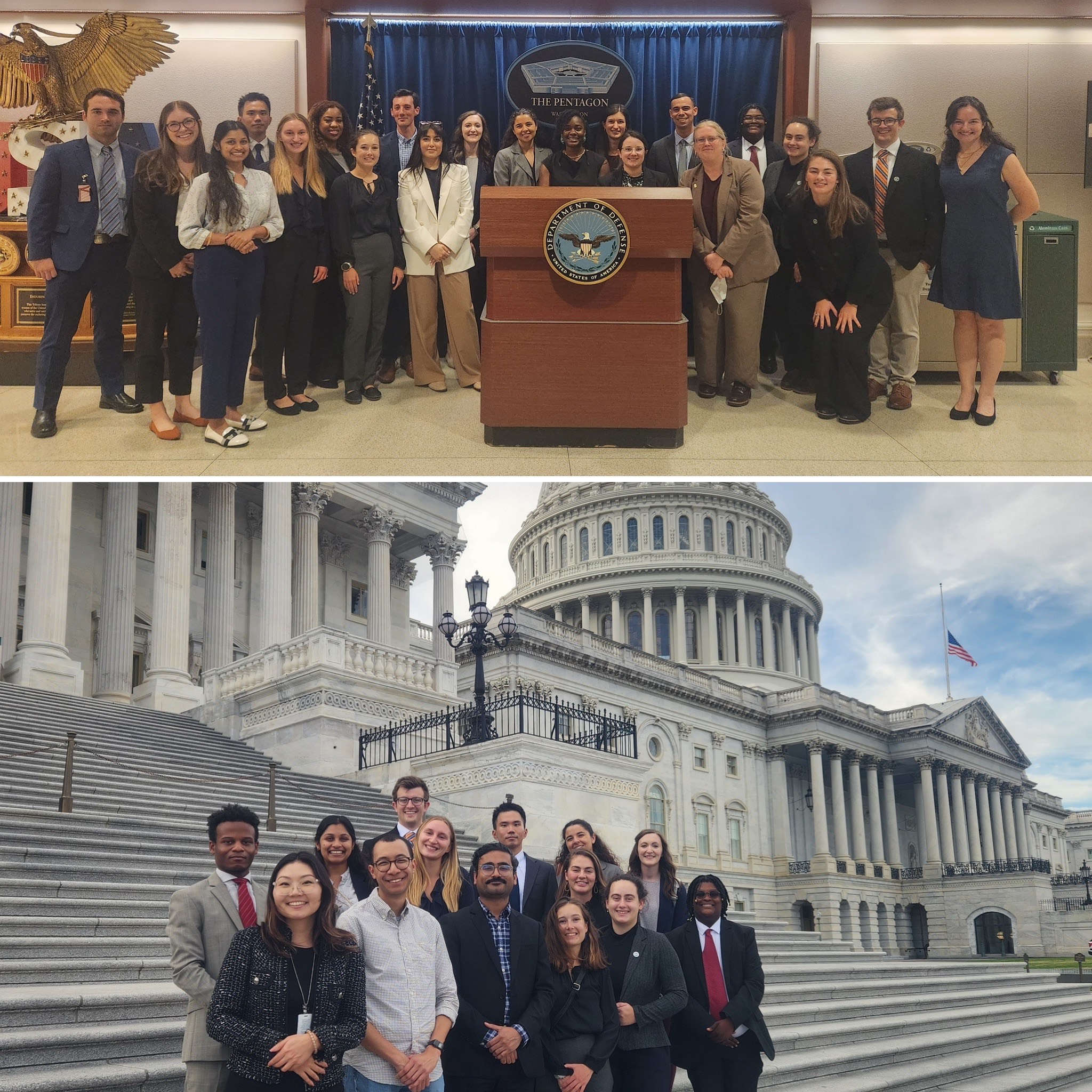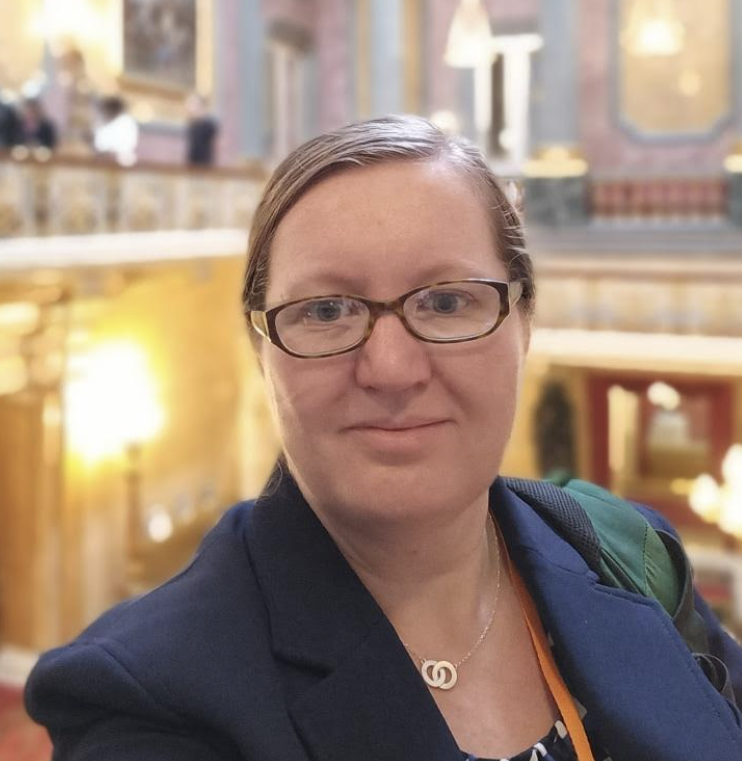
RFG is proud to recognize Mark Hoover (Fletcher 2015) as the winner of the Dr. Michael Schneider Professional Writing Award for the fourth quarter of 2023. His award-winning piece, which Mark coauthored with Gabrielle Fong and Holly Milburn-Smith, is titled, “As City Diplomacy Grows, So Should Our Efforts to Engage Rural Communities in Foreign Policy.” The piece was originally published by the Aspen Institute in March 2023. Please note that the views expressed in this publication are entirely those of the authors and do not reflect the views, policy, or position of the United States Government or the Department of State.
In her 2008 book, The Next American Century: How the U.S. Can Thrive as Other Powers Rise and persistently since (1), Ambassador Nina Hachigian has argued that American foreign policy must prioritize security challenges that could harm Americans where they live. This perspective is central to a growing discourse on subnational diplomacy, a paradigm rooted in the notion that local governments can and should play a role in foreign affairs. “Communities, cities, and states are coming up with some of the most innovative and creative ideas for tackling many of the global challenges we face,” said Hachigian just before her appointment as the first U.S. Special Representative for Subnational Diplomacy (2).
Much of the global focus on subnational diplomacy to date has been on the role of cities in tackling emerging foreign policy and security challenges. Yet while these challenges may “manifest most acutely in urban settings,” (3) urban residents are not alone in their vulnerability to growing transnational threats, nor alone in providing the ideas and human capital needed to address these threats. And while Americans largely agree on abstract principles in foreign policy, such as the role of the U.S. in world affairs, rural and urban Americans are most divided on the issues that have the greatest impact on their lived experiences, including climate change, trade and the economy, and immigration (4).
It is critical that all Americans, no matter their proximity to urban centers, have the opportunity to be engaged in U.S. foreign policy decisions. The scope of today’s transnational threats demands engaged and informed, even if diverse, responses by urban, semi-urban, and rural communities. While urban leaders are increasingly engaged in foreign policy, rural communities remain poorly represented, limiting America’s ability to respond to today’s challenges. To address this gap, the U.S. should consider new approaches to engage rural and urban cluster communities in foreign policy (5).
Grounding Foreign Policy in America’s Rural Communities
Students and officials working in international affairs in the United States historically have been clustered on the East Coast. However, the expansion of telework and widespread familiarity with digital telecommunications technology, accelerated by COVID-19, presents a new opportunity for America’s 330 million citizens to interact directly with and inform America’s foreign policy. Now more than ever, the federal government is observing its employees changing agencies to pursue more telework-friendly jobs (6). If expanded, telework could provide an opportunity to rejuvenate a federal workforce when record numbers of federal workers – including 20.9% of Department of State employees – are eligible for retirement in 2023 and fewer professionals are choosing federal employment (7,8,9). Another incentive to diversify where foreign policy professionals are able to live is the ample evidence demonstrating that early exposure to careers strongly influences youth career choices, with young people often attracted to professions they see in their communities (10,11). Expanding the job opportunities in diverse geographic locations will also generate taxpayer savings as according to law, employees living in New York City or Washington, D.C. cost taxpayers 35% and 31% more than employees in rural communities where they make the federal base salary. Lower minimum salaries outside of traditional hubs are often accompanied by benefits like lower housing, fuel, and tax costs. This is not unprecedented. The United Kingdom committed to moving 22,000 civil servants outside of London by 2030 even prior to COVID-19’s impact on mainstreaming telework in government (12). Although geographically dislocated work can pose operational challenges (13), the economic, social, and policy benefits of including resident rural citizens in foreign policies outweigh the challenges.
Normalizing telework would also make possible a new initiative designed to attract professionals who choose to live in regions previously impractical for international affairs professionals. The Department of State should expand its Diplomat-in-Residence (DIR) program in small towns and rural communities for mid-grade civil or foreign service personnel to serve in for a two- to three-year tour. The current program employs 16 Foreign Service officers based at universities and focused on recruitment specifically to the Foreign Service. An expanded DIR program would bring Foreign Service and civil service practitioners of negotiation, human rights, economic policy, and other fields into the communities the Department of State represents but who may perceive themselves neglected by U.S. foreign policy. In order to attract top talent, the DIR program should be treated as career enhancing for both the civil and Foreign Services. The State Department could work with governors’ offices to identify communities’ interest in hosting a DIR and rotate the position regularly among communities to expand its reach and impact. The DIR would provide a direct link back to the Department, empowering rural and urban cluster communities to raise their concerns and recommendations to inform policy-makers in Washington. A new benefit from these positions could be a formal process for DIRs to provide regular updates to the Department, to include recommendations on how to better engage and represent these communities in foreign policy.
Once again, the State Department could work with governors’ offices to identify communities’ interest in hosting a DIR and rotate the position regularly among communities to expand its reach and impact. Once interested communities have been identified, the State Department could prioritize top candidates based on a number of factors, such as demonstrated local leadership and commitment to the initiative. The percentage of a community’s economic activity stemming from foreign direct investment could also help identify communities with the potential for meaningful foreign policy engagement. This is an especially timely standard as foreign investments are expected to increase with the implementation of the 2022 Infrastructure Investment and Jobs Act and Inflation Reduction Act (14). In the first two months since the legislation passed, more than $28 billion in new clean energy manufacturing investments were announced, including EV battery manufacturing in Oklahoma, Kansas, North Carolina, and Ohio (15).
Stronger Rural American Communities Build Stronger Global Partnerships
A “Homeland-to-Homeland” professional exchange is an initiative designed to link residents, officials, or businesses in rural areas and urban clusters with their counterparts in another country. This exchange would complement the many diverse programs run by the Bureau of Education and Cultural Affairs. Operated over six weeks, the exchange could include international travel, joint travel to Washington, D.C., and digital exchanges with foreign counterparts through business, religious, agricultural associations, or local governments. Selection of paired communities could be designed to match communities that share economic profiles, climates, or demographics such as aging or immigrant-heavy communities. These types of exchanges would empower individual leaders and businesses to innovate and improve communities, which is particularly important in places where citizens prioritize private sector-led efforts to address problems (16). Limited research also indicates that international travel increases an individual’s interest in political affairs, which in turn is a predictor of increased political participation, a bedrock for a functional American democracy (17).
Subnational people-to-people exchange strategies are supported by decades of evidence-based successes from cultural exchanges. For example, SisterCities International, a legacy of President Eisenhower, builds relationships between U.S. communities and global cities and claims its programs contribute over $500 million annually into U.S. communities (18). The strategies recommended here seek to address recent findings that Americans understand the importance of international affairs to their daily lives, but may not necessarily feel they can influence them (19). These recommendations target rural and urban cluster communities, whose economies Pew Research found are the most export-dependent in the United States (20).
Strategic Partnerships for Collective Action
In recent years, cities have taken a leadership role on international issues like countering terrorism and climate change with the federal government playing a facilitating, rather than leading, role in those networks. In recognition of the power of subnational diplomacy, Denver and the U.S. Department of State hosted the first Cities Summit of the Americas in 2023, bringing hundreds of municipal leaders from the hemisphere together. Smaller cities and rural communities may lack the resources necessary to implement the same initiatives that cities have undertaken to advance their foreign affairs goals. To bridge the resource gap, Congress could pursue bipartisan legislation to support small cities and rural communities in their efforts to bolster international engagement on their most pressing issues. Until such additional resources are provided, small cities and rural communities should consider adopting comparable strategies such as forging strategic partnerships with community-based organizations, academic institutions, the private sector, philanthropic organizations, and other local governments.
To this end, the Under Secretary for Public Diplomacy and Public Affairs should prioritize partnering with non-governmental and grassroots organizations to engage American communities on foreign policy. The Center on Rural Innovation’s Rural Innovation Network is one example of a potential partner. The nationwide community of local leaders, focused on advancing economic interest in small towns, is working to provide more than two dozen communities with resources for digital skills development and technological innovation, among other services. As an example, organizations like the Rural Innovation Network could work with offices like the Department of State’s Global Engagement Center to provide information on how foreign and non-state actors are using disinformation to influence American communities. The collaboration between State and grassroots organizations would connect rural communities with additional sources for veritable information on American foreign policy and ensure rural communities’ concerns and priorities are folded into USG foreign policy narratives.
Local news outlets have long served as a source of information for rural communities. However, COVID-19 forced more than 500 local news outlets to close, creating news deserts in many rural communities and further isolating them from foreign policy conversations (21). Several news organizations are rising to fill this void and providing information tailored to rural communities on issues like the economy, climate change, and technology (22). Southerly is one such example, where founder, Lyndsey Gilpin, is equipping Southern communities with the information they need to address transnational threats like climate change and hold leaders accountable for their actions (or inactions). The Department of State and other agencies engaged in foreign policy could build on programs such as the State Department’s Hometown Diplomats to feature employees in their hometown newspapers or on their local radio stations. The Department could also offer local media outlets the opportunity to interview senior Department officials on issues impacting Americans’ daily lives. Additionally, the Department could partner with local universities through Diplomats in Residence or city-based foreign policy associations, among others, to promote and gain insights on foreign policy issues. These efforts would expose the foreign policy professionals to the views of rural and urban cluster communities through trusted local journalists and organizations.
Rural America Contributes to An Inclusive and Ambitious American Foreign Policy
Greater engagement by, and with, rural communities in foreign policy will arm America’s foreign policy institutions with the talent and representation the U.S. needs to achieve its ambitious foreign policy objectives. To do so, American foreign policy makers must build on the flexibility offered by telework and existing employment opportunities to align foreign policy objectives and communication with rural and urban cluster communities’ interests. New opportunities must be considered to develop strategic partnerships both abroad and at the domestic, grassroots level that will strengthen America’s resolve and ability to address the complexities of transnational threats. Foreign policy affects all Americans. Today local leaders are advancing exciting new efforts to expand city engagement in foreign policy, which should be celebrated. The recommendations here demonstrate the opportunities to build on this progress to include rural communities in the expansion of foreign policy formulation and implementation.
Footnotes
(1) Hachigian, Nina. “Local Governments Are Foreign Policy Actors, Too.” The Foreign Service Journal, Jan/Feb 2022.
(2) Wilkinson, Tracy. “Garcetti deputy named to high-level U.S. diplomatic post.” Los Angeles Times, Oct. 3, 2022.
(3) Kosovac, Anna, Kris Hartley, Michele Acuto, and Darcy Gunning. Conducting City Diplomacy: A Survey of International Engagement in 47 Cities.” The Chicago Council on Global Affairs, October 2020.
(4) Tabory, Sam, and Dina Smeltz. “The Urban-Suburban-Rural ‘Divide’ in American Views on Foreign Policy: Understanding Both Agreement and Disagreement Among the US Public.” The Chicago Council on Global Affairs, May 2017. https://www.thechicagocouncil.org/sites/default/files/2021-08/report_urban-rural-divide-us-foreign-policy_170524.pdf.
(5) Urban clusters are defined by the U.S. Census Bureau as areas containing at least 2,500 and less than 50,000 people.
(6) Heckman, Jory. “OPM Says Federal Employees ‘agency hopping’ to telework friendly offices.” Federal News Network, July 2022.
(7) Katz, Eric. “The Federal Agencies Where the Most Employees Are Eligible to Retire.” Government Executive. June 18, 2018.
(8) 20.9% Statistic Provided by Department of State’’s Office of Organization and Talent Analytics. Jan 20, 2023
(9) Hill, Fiona. “Public service and the federal government.” Brookings Institute. May 27, 2020.
(10) “Fatherly Magazine. This Is What Kids In 2015 Want To Be When They Grow Up.” November 18, 2015. https://www.fatherly.com/news/what-kids-want-to-be-when-they-grow-up
(11) Gore, Jennifer, Kathryn Holmes, Max Smith, Erica Southgate & Jim Albright. “Socioeconomic status and the career aspirations of Australian school students: Testing enduring assumptions.” The Australian Educational Researcher volume 42, pages155–177 (2015).
(12) Institute for Government. “Relocation of the civil service.”
(13) Indeed Editorial Team. “6 Challenges of Managing Geographically Distributed Teams.” December 14, 2021. https://www.indeed.com/career-advice/career-development/managing-distributed-team-challenges
(14) Tomer, Adie. “Will the infrastructure law and Inflation Reduction Act transform American transportation? It’s complicated.” Brookings, Nov. 1, 2022.
(15) Marcacci, Silvo and Energy Innovation: Policy and Technology. “$28 Billion In New Clean Energy Manufacturing Investments Announced Since Inflation Reduction Act Passed.” Forbes, Oct 12, 2022.
(16) Parker, Kim, Juliana Menasce Horowitz, Anna Brown, Richard Fry, D’Vera Cohn, and Ruth Igielnik. “Urban, suburban and rural residents’ views on key social and political issues.” Pew Research Center. May 22, 2018.
(17) Wood, BL. “The effects of travel on political behavior and foreign policy opinions.” Washington State University Dissertation for partial fulfillment of requirements of a Doctor of Philosophy. May 2019.
(18) SisterCities International. “Measures That Matter: A study on the economic benefits of sister city relationships in the U.S. and their impact on the global economy 2014-2015.” https://sistercities.org/wp-content/uploads/2018/04/Measures-that-Matter.pdf
(19) Council on Foreign Affairs. “Americans Lack Knowledge of International Issues Yet Consider Them Important, Finds New Survey.” December 5, 2019.
(20) Desilver, Drew. “As trade disputes intensify, U.S. counties that rely most on exports tend to be small and in South, Midwest.” Pew Research Center. June 19, 2019.
(21) April Simpson, “As Local News Outlets Shutter, Rural America Suffers Most,” PewTrusts.org, The Pew Charitable Trusts, October, 21, 2019. https://www.pewtrusts.org/en/research-and-analysis/blogs/stateline/2019/10/21/as-local-news-outlets-shutter-rural-america-suffers-most.
(22) Celeste Katz Marston, “Six Rural News Outlets Trying to Bridge the Information Divide,” NiemanReports.org, Nieman Reports, August, 26, 2021. https://niemanreports.org/articles/six-rural-news-outlets-trying-to-bridge-the-information-divide/.
